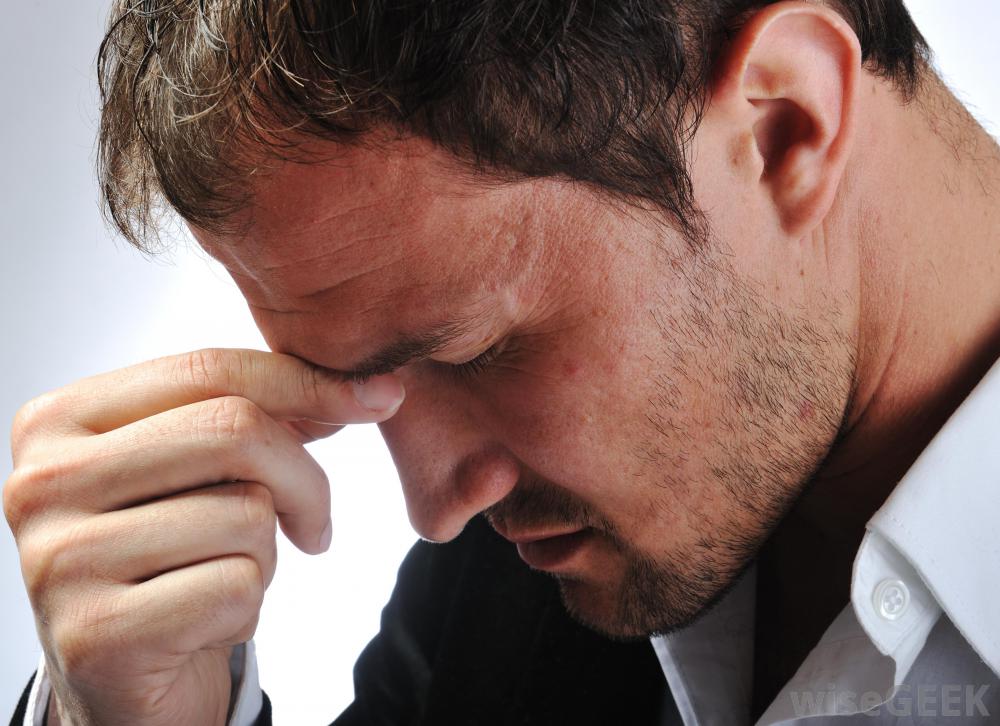


Headaches and dry mouth are symptoms that very frequently occur in a wide range of medical conditions. Some of these conditions are characteristic for children (e.g. aseptic meningitis), while others occur most often in adults (e.g. tension headache, adult aseptic meningitis, sunburn, sleep apnea, etc). Let’s discuss some of these conditions, the associated symptoms and how to manage them.

Tension headache is the most prevalent types of headaches. People who suffer from this disorder usually complain of dull, annoying pain that feels like a pressure on the skull. The intensity of the pain varies from mild to severe. The condition usually occurs during mid-life and has a negative impact on productivity, leading to increased number of sick days.
Besides headache and dry mouth, other symptoms are constant pain in the neck, sense of pressure around the skull, tenderness of the skin and muscles of the head and neck, anxiety, depression, sleeping disorders, etc.
Treatment: Since tension headaches are usually triggered by stressful situations or maintaining poor posture, treatment is aimed at avoidance of these factors. In acute phase patients are advised to take muscle relaxants or painkillers. Patients are also advised to avoid stressful situations, learn and apply relaxation techniques and seek for alternative ways such as breathing exercises, meditation, yoga to overcome stress and tension.
Aseptic meningitis, also called viral meningitis, is characterized by inflammation of the meninges (the layer that covers the brain and the spinal cord). It is caused by a virus in most of the cases and less often by fungi.
Symptoms include dry mouth and headache,mild fever, headache, neck pain and stiffness, fatigue, confusion, nausea, light sensitivity and in some cases diarrhea. In majority of the cases aseptic meningitis is cured on its own within 6 to 14 days with plenty of rest, over-the-counter fever and pain relievers and fluids.
You can prevent the illness by taking care of the following:
Extensive and/or repeated exposure to the ultraviolet rays of sun may be harmful to the skin and overall health.
Symptoms of sunburn are tender, irritated and red skin, dry mouth and headache, fever, weakness, nausea and vomiting and in severe cases appearance of blisters on exposed portions of the skin. In severe cases of sunburn, when a large surface of the skin is affected, dehydration may also occur. A few days later the sunburn becomes dark and the surface layer may start to peel off and itch.
Treatment of sunburn includes:
It may take several weeks to recover completely from moderate sunburn.
Self care:
Note that constant sun exposure leads to premature aging of the skin and in certain cases skin cancer. Therefore, people who work outdoors must stay covered and use sun-protective creams. It would also be good to avoid sun tanning during period of most intensive ultraviolet lights (between 10 a.m and 4 p.m.).
Dehydration happens when the loss of bodily fluids is more than its intake. It can occur in all ages, but some groups are more susceptible and sensitive, including newborns, infants, elderly people or people suffering from certain diseases and conditions such as diabetes, some types of cancer or sunburn. Excessive fluid loss may also accompany conditions such as vomiting, diarrhea or excessive sweating without fluid replacement.
The most typical symptoms of dehydration are increased thirst and decreased urination, dry mouth and headache, dizziness, fatigue, a drop in blood pressure, palpitations and painful muscle cramps. The skin loses its firmness. In severe forms, the brain suffers from insufficient hydration, which may lead to seizures. The terminal phases of dehydration are coma and death.
The treatment of dehydration is replacement of fluids and electrolytes, either orally (by mouth) or intravenously. This depends on the primary cause of dehydration, the age of the patient and their ability to take water. Sport drinks containing electrolytes and carbohydrates are very useful in the treatment of dehydration. If fluids are given orally, it is important to give them in small sips instead of giving a large amount in one sip.
In people suffering from sleep apnea, breathing stops and restarts multiple times during sleep. Episodes of no breathing may last from a couple of seconds to a couple of minutes. In the majority of the cases it is due to airway collapse, which blocks the airflow into and out the lungs. If not treated, sleep apnea increases the risk of hypertension, heart failure, problems with heart rhythm and diabetes. Apart from dry mouth and headache, other symptoms include memory problems, fatigue, snoring, disorientation, and prolonged pauses in breathing.
Treatment includes:
Self care: